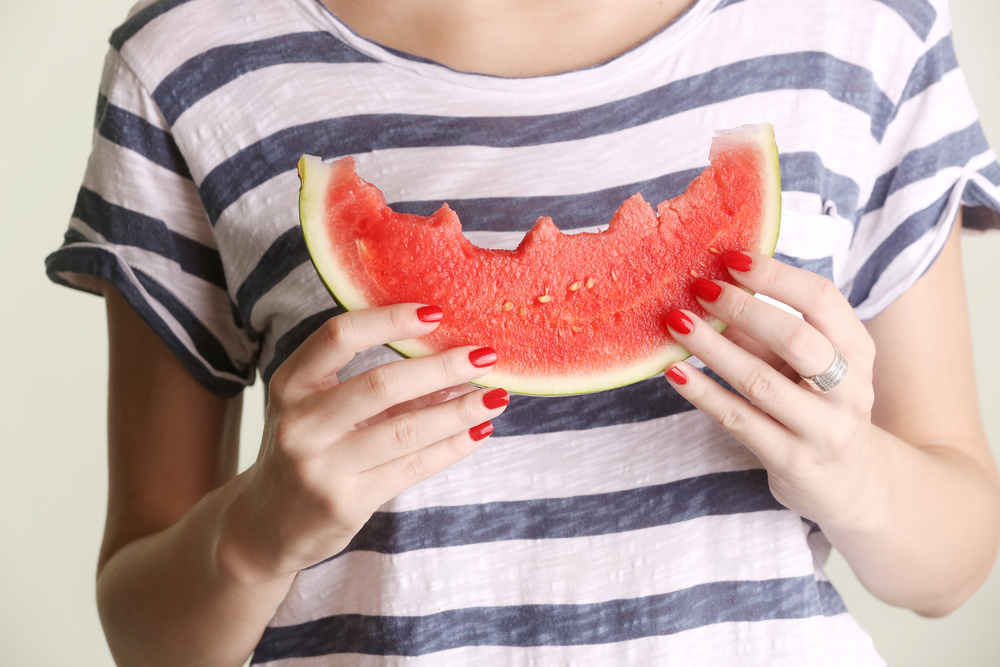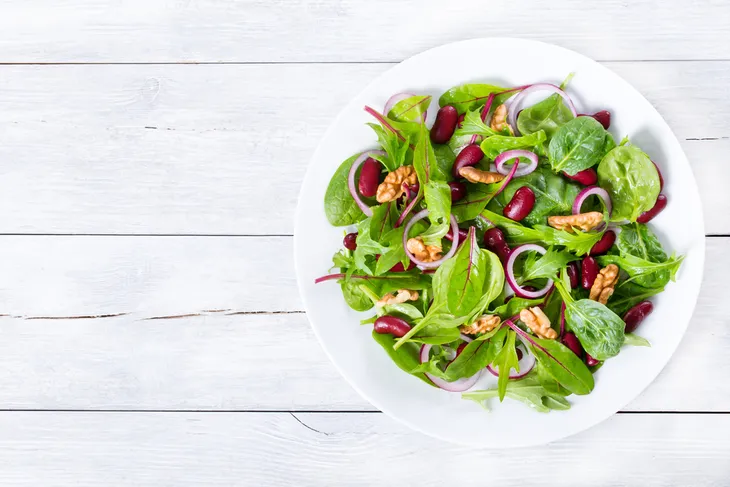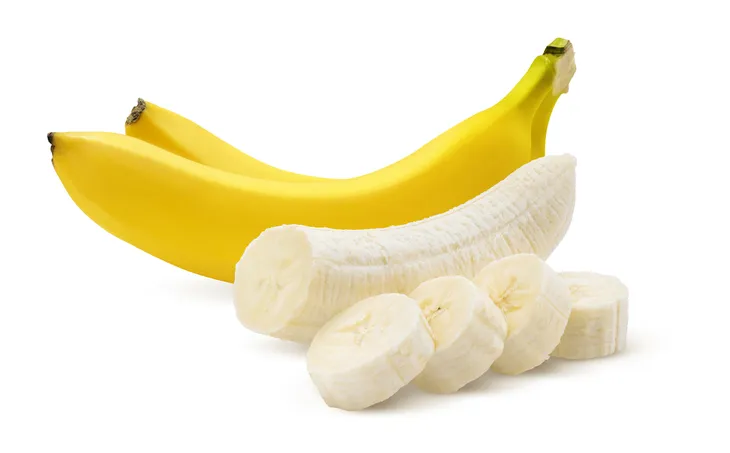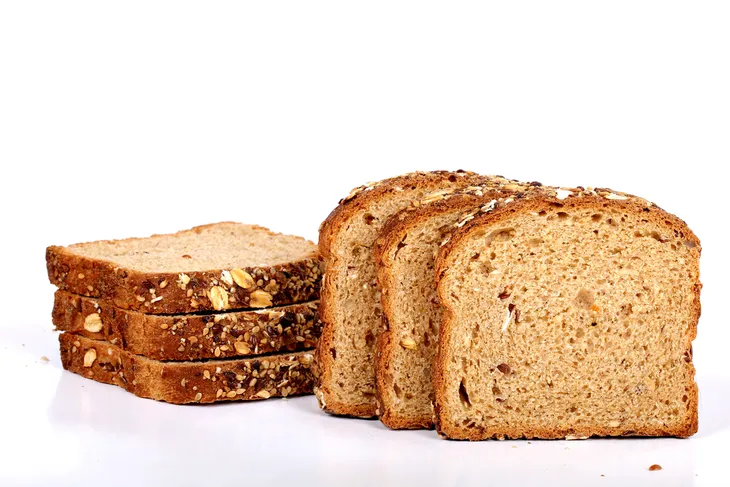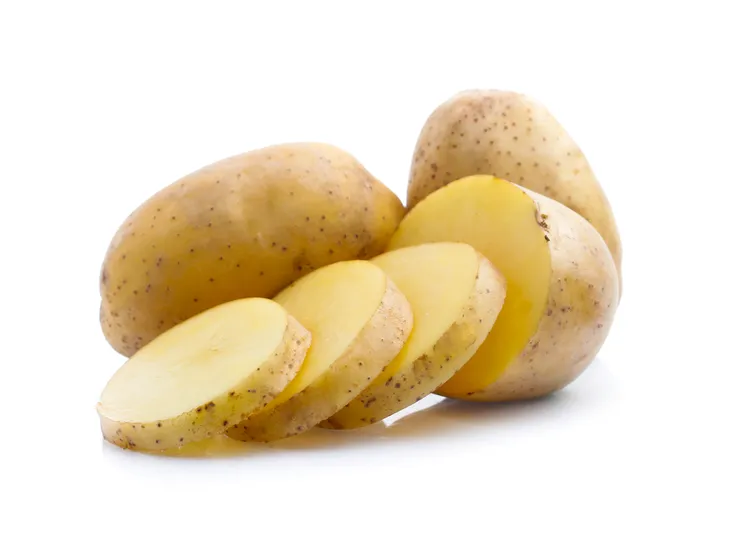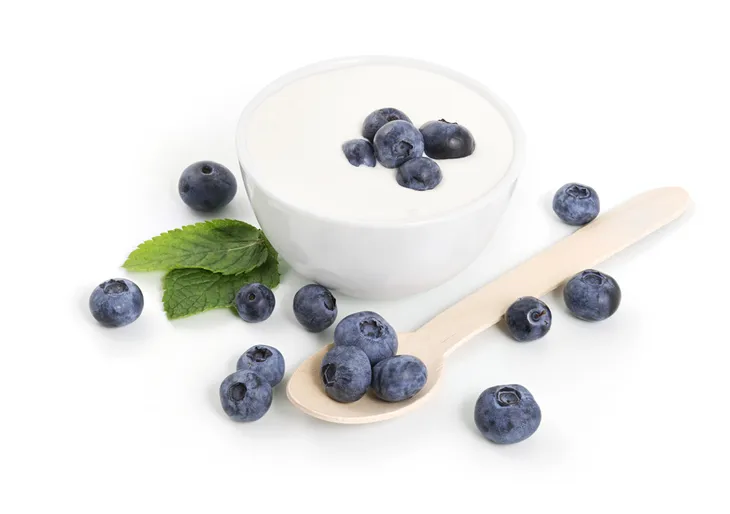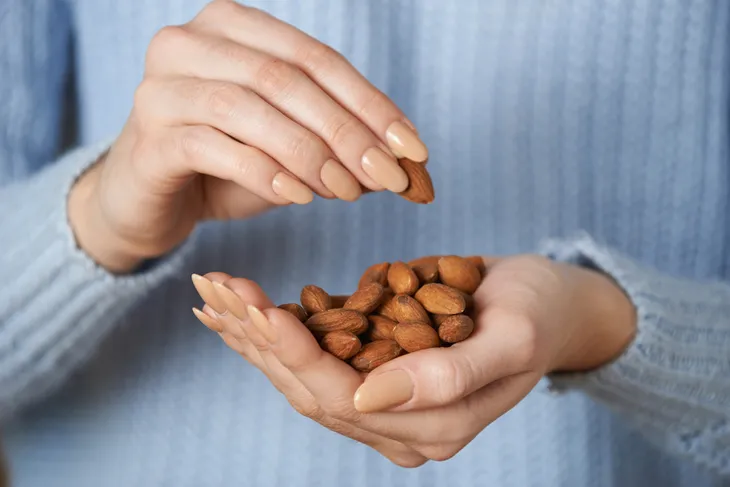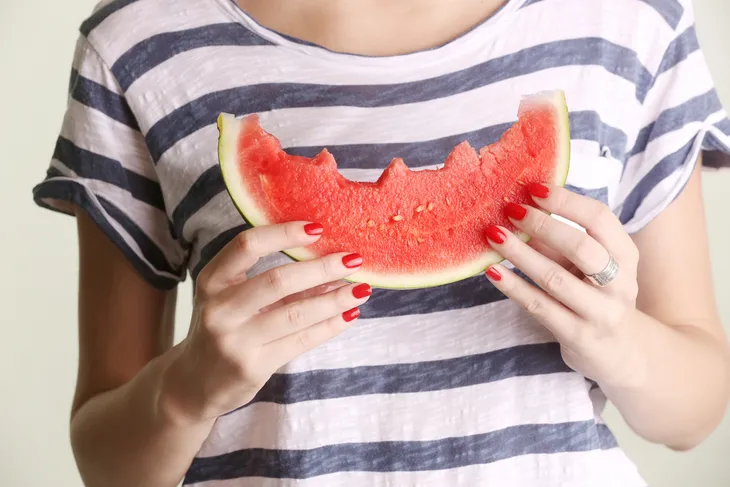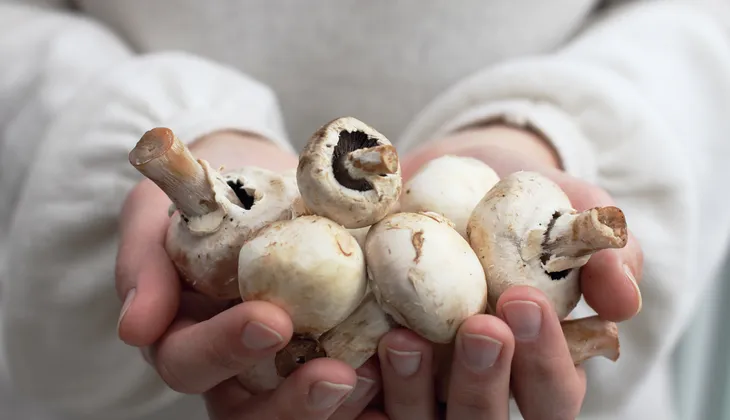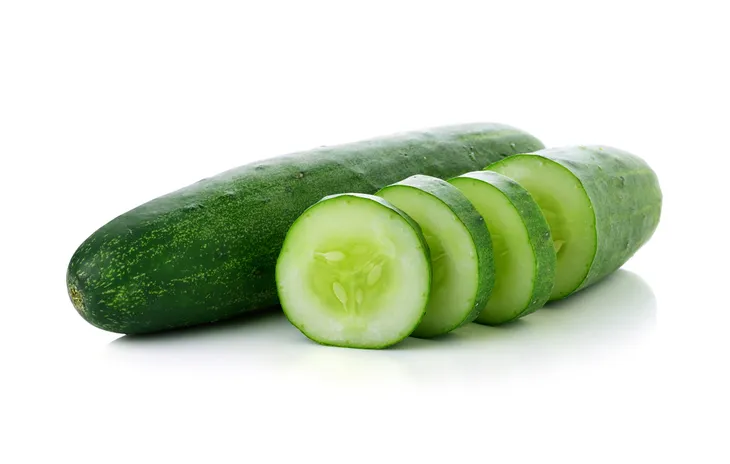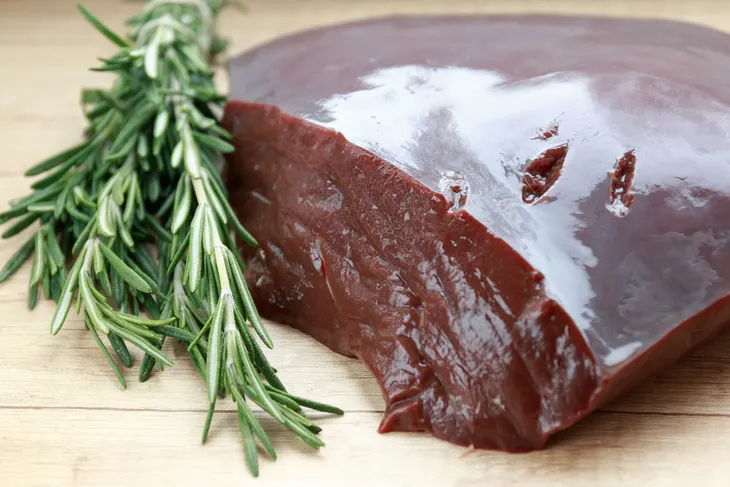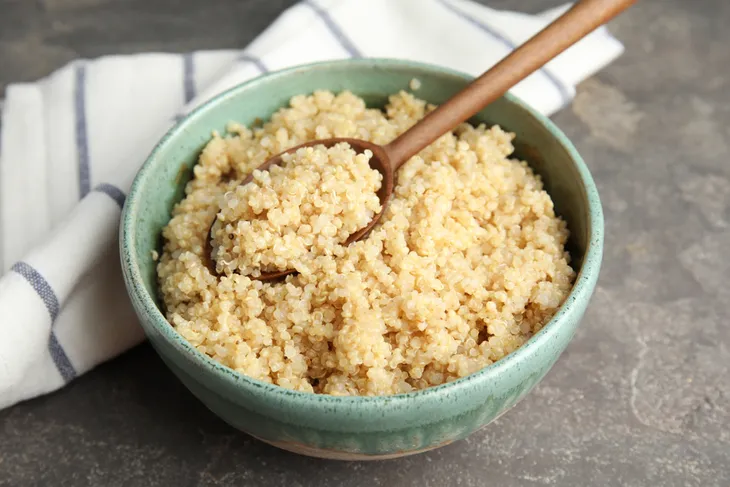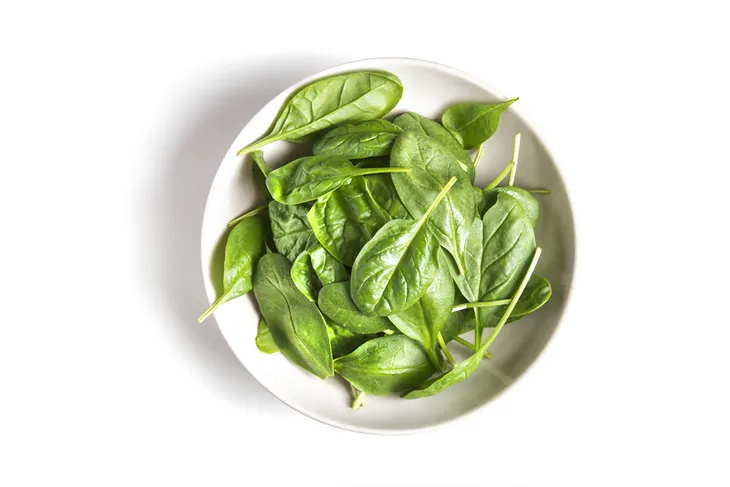Sufferers of headaches know just how debilitating they can be. Headaches occur in millions of individuals across the country, and they have a myriad of different causes. The consumption of different foods can be the cause and the cure of headaches. Food allergies and sensitivities are a leading cause of headaches and migraines, and the symptoms are not only pain, but can include vertigo, fatigue, malaise, and auditory and visual auras.
Individuals who suffer severe headaches and migraines may find themselves bedridden from the pain. A condition called chronic migraines sees sufferers in pain more than 50-percent of the time. There are a variety of medications available to treat headaches, but some people find that medication does not lessen the severity of their pain. Alternative treatments include lifestyle changes, stress management, and dietary changes. Improper nutrition can easily be the cause of a headache. Here are 15 foods that could relieve your headache and get you back to feeling good in no time.
Want diet & nutrition content delivered straight to your inbox? Sign up for our exclusive diet & nutrition newsletter!
Salad
If you wake up with a pounding headache from partying too hard from the night before, your pain may be in part from dehydration. One great meal to make to help rehydrate yourself is salad. Lettuce and spinach leaves are high in water and fiber, which will make your body feel great.
Iceberg lettuce has a high water content but low level of nutrients, so consider a blend of different lettuce types, such as butter lettuce, spinach, arugula, romaine, or escarole. For instance, romaine lettuce long pale-green leaves are super crisp in texture. However, the crispest and most flavorful section of a romaine plant are the lighter leaves closest to the center, known as romaine hearts. Butter lettuce is the crunchiest variety of lettuce with small, round, loose leaves with a soft, buttery-textured that go from pale green to pale yellow-green on the nearer to the plant’s center.
Coffee
In moderation, coffee can be a great fix for a pounding headache. Caffeine is a vasoconstrictor, which means it can reduce the size of blood vessels. In excess, this can cause a headache. However, one cup of coffee could help tame a difficult migraine. If your headache is caused by seasonal allergies, coffee will have an even greater effect.
Coffee can reduce the release of histamine in your blood, which will calm allergic reactions and save your head from pounding pain. Research points out that this allergy-fighting super power comes from the high antioxidants, or phytochemicals, in coffee, which is a plant-based food that protects our cells from free radical damage that cause disease.
Bananas
Bananas are a great food to eat when trying to relieve a stubborn headache. They are high in magnesium, which can relax your blood vessels and ease head pain. They are also high in potassium, which is an essential part of your electrolyte balance. A night of heavy drinking can leave you with a painful hangover and you may need to replace your lost electrolytes due to dehydration.
Akin to athletes who eat bananas because they contain high levels of potassium, bananas deliver the same potassium boost to cure a hangover. Replenishing lost potassium stores when you’re hungover, or before you drink, can prevent nausea, headache, and muscle fatigue, and quicken the recovery process after drinking too much.
Spicy Foods
If seasonal allergies or the flu have your head pounding, try snacking on spicy foods. Consuming spicy foods can relieve congestion, which will reduce sinus pressure and open up your airways. Chili powder is also packed with vitamin E. This nutrient can relax your blood vessels, helping give relief to a sore head. Vitamin E supplements pills can cause headaches, so consult with your doctor before taking high doses of this vitamin.
In a study published by the U.S. National Institutes of Health, the effects of vitamin E (as a prophylactic agent) were monitored when prescribed 72 women with menstrual migraine were given a vitamin E softgel tablet or a placebo. Those women who took the vitamin E supplement reported a significant reduction in pain severity and pain disability compared to those women on the placebo.
Bread
Whole grain bread is a great food for people suffering from headaches or migraines. The unprocessed grains release carbohydrates slower than white bread, which can replenish your physical energy. If you have started a new diet, headaches can be common as your body gets used to its new fuel sources. Remember to consume healthy carbohydrates for complete nutritional health. Some simple toast with butter could be the ticket to a pain free head.
A 1983 study conducted at Hospital for Sick Children, in London, England monitored the effects of an elimination diet on 88 children with severe, chronic migraines. The children ate a so-called “pain free” food diet that included brown rice. Findings reported that after the diet was completed, 78 of the children no longer experienced migraines while four children in the group improved substantially.
Potatoes
Enjoy your potatoes with their skin on for the best headache relief. The skin of a large potato is packed with potassium. Potassium deficiencies are very common, with the majority of people never reaching their daily recommended levels of the vitamin. A diet with excess salt can further exacerbate the problem. Enjoy potatoes, with their skin, as a potassium rich food for easy headache care.
Akin to bananas, potatoes are also high in potassium, which can help restore electrolyte balance, particularly after a night of heavy drinking. If you become dehydrated due to lack of fluids or exertion, those lost electrolytes can cause a dehydration-related headache. However, potatoes eaten after a workout or night of drinking can relieve nausea, headache, and hasten the recovery process.
Yogurt
Having a snack high in calcium can help relax your body and take care of a sore head. Low calcium levels can cause painful headaches, so make sure you are consuming your daily recommended doses of this vital nutrient. Yogurt is a delicious way to get a boost of calcium. Look for 0-percent fat Greek varieties for one of the healthiest yogurt available. Yogurt with berries for breakfast would be an ideal way to start battling a tough hangover.
A study conducted by researchers at the University of Manchester in the UK, linked women who consumed a minimum of 4.4-ounce servings of Activia yogurt daily for a month to reduced inflammation (including bloating and headache). Specifically, the study reported a 78-percent decrease in overall inflammation due to good bacteria, or probiotics, in yogurt.
Almonds
Start helping your sore head by eating a handful of almonds. This healthy snack is high in tryptophan, an amino acid that helps release serotonin, the feel good brain chemical. Turkey is another great option for consuming this amino acid. Almonds are also full of magnesium, which can relax your muscles and blood vessels. Physical pain and mental stress can cause tension headaches, which would benefit from consuming extra magnesium.
Although nuts are a trigger for migraines in some individuals, almonds are often used as a non-drug remedy for tension-type headaches. This is due to the high salicin content, a common agent in many over-the-counter painkillers. If you feel a headache coming on, a quick handful of almonds may ward it off.
Watermelon
Watermelon is a delicious way to quickly rehydrate and consume healthy sugars. Watermelon has a very high water content, thus its name. You can enjoy watermelon cut up, frozen, or blended into drinks. Dehydration can quickly cause a pounding headache so if you find it difficult to drink enough water throughout the day, try snacking on high water fruits and vegetables.
This is especially important in the summer months when heatstroke is a danger. And luckily, watermelon is a fruit that is not only high in water content, but also one that is super cooling to eat as well as light on the tummy during really humid days when you don’t feel like eating much. Watermelon also provides a touch of natural sweetness so it makes the ideal light after meal dessert.
Mushrooms
Mushrooms are high in vitamin B2, also called riboflavin. This nutrient is important in making celular energy. Riboflavin deficiencies can occur due to poor diet or genetic predisposition. Eating a diet high in B2 can help relieve and prevent headaches. Mushrooms have high levels of riboflavin, along with broccoli and spinach. Many cereals also come fortified with B2.
In fact, scientific research shows that riboflavin encourages the production of red blood cells, which can explain why many migraine sufferers also have a vitamin B2 deficiency. Riboflavin also boosts energy absorption from foods like carbohydrates, fats, and proteins, to ensure migraine sufferers are properly energized.
Salmon
Diets high in healthy fats have been shown to help relieve chronic headaches. Salmon contains a large amount of omega-3 fatty acids, which can reduce inflammation and stop a sore head. Other healthy fats include olive oils, avocado, and other fish products. Sardines are a great option. Some studies have found that regularly consuming olive oil can reduce the number of headaches, the length they last, and the severity of the pain.
According to research published by the U.S. National Institutes of Health, fish oils (those found in fatty fish, like salmon) contain naturally occurring anti-inflammatory and nerve protecting benefits, which substantially reduce the frequency and pain of migraines. If you’re not a salmon fan, omega-3 compounds (DHA-EPA) can be taken in supplement form.
Cucumber
Prevent getting headaches in the first place by drinking water throughout the day. Cucumbers are a great high water vegetable that can quickly rehydrate a sore body. If you’re battling a painful hangover, make a green smoothie to start your day. Blend together cucumber, apples, and spinach for a high water, high nutrient drink. Other high water foods include berries, tomatoes, and celery.
Similar to watermelon, cucumber is a water-rich vegetable that can easily be incorporated into many foods–such as salads, sandwiches, and smoothies. Getting that extra bit of hydration in before a night of heavy drinking can prevent a hangover and keep hydration levels stable. Typically, the most common source of a hangover is dehydration.
Liver
Beef liver is very high in vitamin B3, also known as niacin. Slight deficiencies of niacin can cause pounding headaches and migraines. Niacin is a water soluble vitamin, which means that you can eat it in excess without worries of overdoses. Enjoy liver as an entree, sausages, or as pâté. Liver fried with onions is a popular home style dish served at diner restaurants. This healthy food is also high in B6, B12, folate, vitamin A, vitamin E, and vitamin K.
Researchers from the University of Maryland Medical Center claim that foods high in vitamin B3, like beef liver, has shown success in treating chronic migraines.The best food sources of vitamin B3 are beef liver and kidney, as well as beets, salmon, sunflower seeds, and peanuts. Many types of cereals are also fortified with niacin (or B3).
Quinoa
This health food is a popular new food on the market. Quinoa is a seed, not a grain, which means it’s high in protein and relatively low in carbohydrates. Quinoa is also high in magnesium. This nutrient is of great benefit to women suffering from menstrual migraines. Other foods high in magnesium include sunflower seeds, sweet potatoes, Swiss chard, and brown rice.
Research from the U.S. National Institutes of Health have linked magnesium to the relief of migraine headaches. Several clinical studies show that magnesium can affect serotonin receptors as well as a combination of other migraine related neurotransmitters. In fact, findings report that during an acute migraine attack, approximately 50-percent of sufferers experience decreased levels of ionized magnesium.
Spinach
Spinach is a powerhouse of migraine relief. It has been shown to reduce blood pressure, which can prevent chronic headaches. It can also help tame a killer hangover. Spinach is also high in magnesium. This leafy green has a high water content, which can help with dehydration or hangovers. Enjoy this vegetable raw in a salad or lightly cooked. Overcooking this green could destroy some of the beneficial nutrients.
As mentioned, several clinical studies, including a collection of findings from the U.S. National Institutes of Health find that magnesium is related to the relief of migraine headaches due to its effect on serotonin receptors and other migraine-related neurotransmitters. One NCBI study found that half of acute migraine sufferers also have low levels of ionized magnesium.
